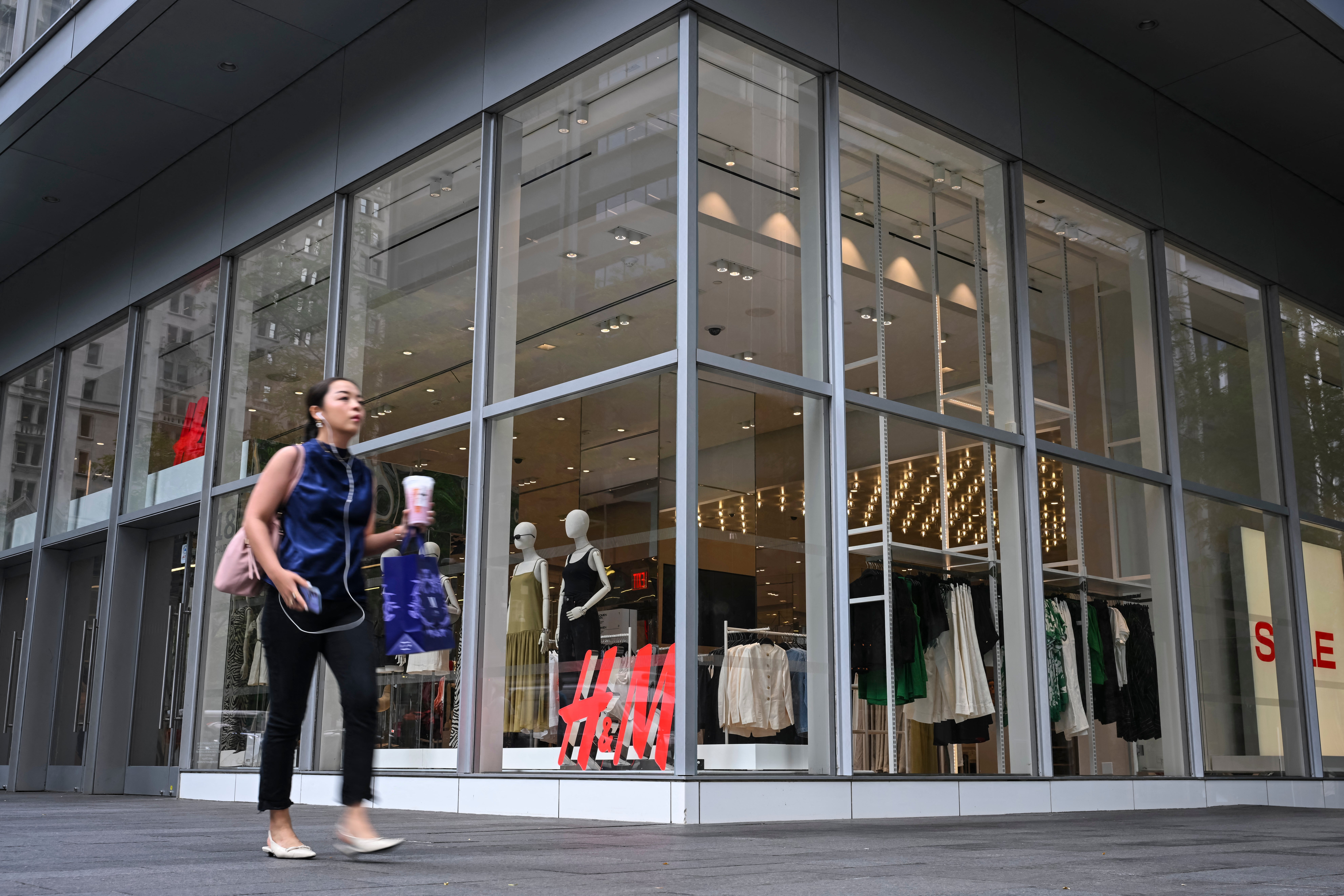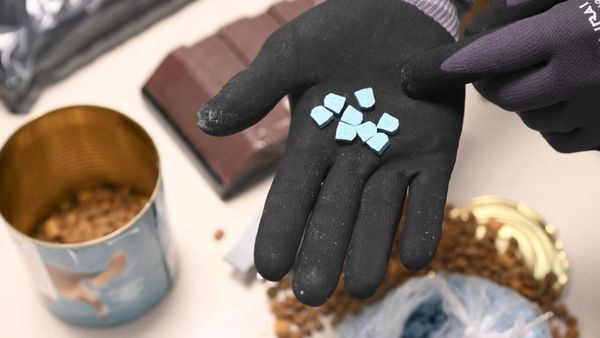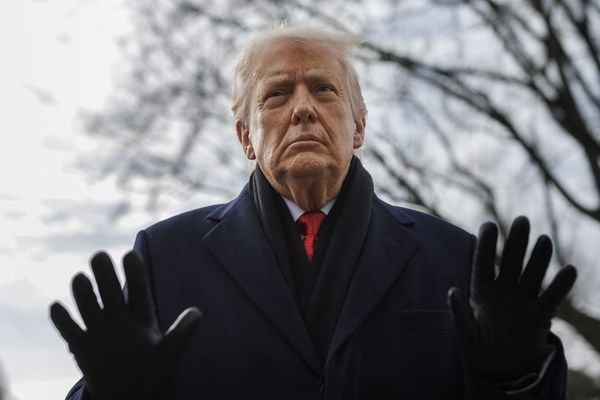The massive import taxes being imposed on Americans by President Donald Trump will liberate American households from approximately $2,500 that will be cut out from their yearly income as a result of higher prices.
According to a new study from the Yale Budget Lab, the new Trump tariffs combined with existing import taxes will cause consumers to pay an overall effective tariff rate of 18.6 percent, the highest tariff level for U.S. imports since 1933.
While Trump has frequently claimed that the tariffs are being paid by foreign nations as an entry fee for access to the American economy, they are actually import taxes typically paid by American importers and passed on to consumers, often in the form of higher prices.
The Yale study found that prices will rise on average by 1.8 percent “in the short run,” with the latest tariffs imposed by Trump set to disproportionately hit consumer purchases of clothing and textiles.
For example, shoes and apparel will become 39 and 37 percent more expensive in the short run, the study found.
The new tariffs include a whopping 50 percent tax on Indian imports, plus 35 percent taxes on goods from Laos, Switzerland, and Iraq.
Everyday items ranging from coffee to Toyotas, home furnishings to Gap jeans, are expected to become more expensive as companies adjust their prices to counteract the impact of tariffs. While the president has asked companies to absorb any increases in costs, many cannot forever.
Here are some of the goods expected to cost more:
Alcohol
Consumers of French, Italian or Spanish wines, Scotch whiskey, and aperitifs such as Aperol, can expect to see the price of their favorite alcoholic beverage rise due to the 15 percent tariff on the European Union.
The E.U. is a major exporter of wines and spirits to the U.S. In 2024 alone, the E.U. accounted for $3.4 billion worth of imported spirits.
Despite pleas from the beverage industry, the president’s trade deal did not create exemptions for alcohol, which will likely drive up the price of imported wine or liquor – either in stores or restaurants.
“Without productive negotiations reducing reciprocal tariffs on wine and spirits, American wine retailers anticipate a significant decline in sales on top of the already difficult market, as well as significant job losses and subsequent business closures,” Tom Wark, the executive director of the Association of Wine Retailers, said.
A letter to the president from the Toast Not Tariffs Coalition, a group of 57 associations representing the U.S. alcohol industry and related industries, said tariffs on the E.U. could result in 25,000 American job losses, and nearly $2 billion in lost sales.
Diageo, the maker of Guinness, Bailey’s, Johnnie Walker, and more, said the company expects to see a $200 million slump as a result of the tariffs.
Cars and car parts
Already, consumers have seen cars and car parts become more expensive over the last few months as a result of Trump’s tariffs because the U.S. relies heavily on its trading partners for auto parts.
Cox Automotive, an industry service and technology provider, expects the sticker price of vehicles to rise anywhere from 4 to 8 percent by the end of the year. That means the average car price would be above $50,000.
While the president struck several deals with countries, many of them still make imported vehicles more expensive.

Imported cars from the U.K., such as Range Rovers, are subject to a 10 percent tariff.
Japan, which sells more cars to the U.S. than any other country, is facing a 15 percent tariff rate, which is expected to cause major disruption.
Toyota said on August 7 it expects a $9.5 billion profit loss for the year.
"It's honestly very difficult for us to predict what will happen regarding the market environment," Takanori Azuma, Toyota's head of finance, said.
But given that many car parts are imported from Japan, the tariffs are likely to hurt U.S. carmakers as well.
General Motors projects a $4 billion loss, Stellantis, the maker of Jeep, said it anticipates tariffs will add $1.7 billion in expenses, and Ford, which builds more cars in the U.S. than any of its rivals, said it expects tariffs to cause a $2 billion loss this year.
Clothing
Clothing is expected to see one of the most significant price increases, and much of it comes from countries in Asia.
Vietnam, one of the largest exporters of appear to the U.S., has agreed to a 20 percent tariff. Brands such as Nike, Adidas, Zara, and Gap manufacture much of their clothing in Vietnam. While many can absorb some of those costs, even raising prices 10 percent would make a $65 pair of shoes $71.50, without tax.

Bjorn Gulden, the CEO of Adidas, said the tariffs “will directly increase the cost of our products for the U.S.”
Other countries that are high producers of clothing face significant tariffs as well. Bangladesh has a 20 percent tariff, while Indonesia and Cambodia both face a 19 percent tariff.
India, also a large producer of apparel, faces a steep tariff of 25 percent and Trump has threatened to increase that to 50 percent by the end of August if the country does not stop importing Russian oil.
While the U.S. also imports a large portion of clothing from China, which is still negotiating a trade deal, Trump’s decision to get rid of the de minimis exemption will make it more costly for consumers to purchase cheap clothing from stores like Shein or Temu.
Coffee
The U.S. relies heavily on Brazil to import coffee for the 165 million people who need their daily caffeine fix, but Trump’s 50 percent tariff threatens the long-term availability and price of the drink.
"When people go to their local coffee shop, whether it's Starbucks or something else, by and large they will likely be buying some form of Brazilian coffee," Monica de Bolle, senior fellow at the Peterson Institute for International Economics, told NPR.
Plans to take Gaza City are met with defiance from war-weary Palestinians and anger by many Israelis
Netanyahu’s brutal plan for Gaza is a gamble on Israel’s very future
He told Jan 6 rioters to ‘kill’ cops. Now he’s working at the Justice Department
Ukrainian troops have little hope for peace as Trump's deadline for Russia arrives
Trump boots IRS commissioner after just months on the job
Trump’s DOJ subpoenas NY AG’s office for files on Trump’s civil prosecution







